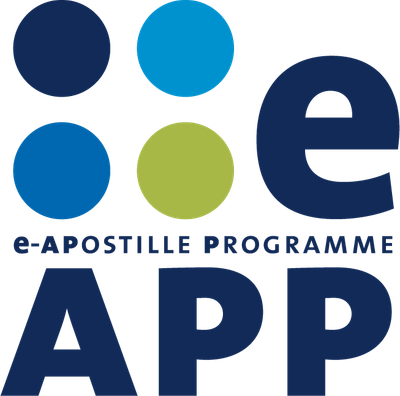Impressive progress with the e-APP in Argentina, Bolivia, the Philippines and Latvia

Several important developments have taken place recently in relation to the implementation of one or both components (i.e. have an e-Register and/or issue e-Apostilles) of the electronic Apostille Programme (e-APP), under the HCCH Convention of 5 October 1961 Abolishing the Requirement of Legalisation for Foreign Public Documents (Apostille Convention).
In April 2019, Argentina began issuing e-Apostilles and also launched a new e-Register. The Ministry now has two e-Registers in operation, its original e-Register for Apostilles issued between 17 November 2017 and 14 April 2019 (available at: < https://www.cancilleria.gob.ar/es/servicios/verificacion-de-apostilla-o-legalizacion >), and the latest e-Register for Apostilles issued from 15 April 2019 (available at: https://www.argentina.gob.ar/legalizacion-internacional/en). Argentina has become the 12th Contracting Party in which both components of the e-APP have been implemented.
Bolivia also achieved full implementation of both components in recent months, issuing e-Apostilles from 25 April 2019 and launching an e-Register, which is available at: < http://apostilla.rree.gob.bo/#/verificar >. Bolivia is the 13th Contracting Party to have implemented both components of the e-APP.
The newest Contracting Party to the Convention, the Philippines, implemented an e-Register for the verification of its Apostilles upon entry into force of the Convention in May 2019. Implementation of the e-Apostille component is also currently under consideration. The Filipino e-Register can be accessed at: < www.dfa.gov.ph/verify-apostille >.
In July 2019, Latvia became the 14th Contracting Party to have implemented both e-APP components, when the Sworn Council of Notaries became the Competent Authority and began issuing e-Apostilles. At the same time, it launched a new e-Register, which is available at: < https://www.latvijasnotars.lv/apostille/verify >.
The Permanent Bureau congratulates Argentina, Bolivia, the Philippines and Latvia on their new systems. To date, Competent Authorities in 38 Contracting Parties have implemented one or both components of the e-APP. This is testament to the ever-increasing support for the e-APP around the world and the important role that it plays in ensuring the effective and secure operation of the Apostille Convention. For more information in relation to the status of e-APP implementation globally, see the Implementation Chart of the e-APP, and the List of Operational e-Registers.
These developments are particularly auspicious given the upcoming 11th International Forum on the e-APP, which will take place in Fortaleza (Brazil), from Wednesday 16 to Friday 18 October 2019. This Forum, which is the second to be held in Latin America, will be jointly organised by the HCCH, the Ministry of Foreign Affairs of Brazil, the Brazilian National Council of Justice (CNJ) and the Association of Notaries and Registrars of Brazil (ANOREG). As with previous editions, the Fortaleza Forum will provide an international venue for the exchange of best practices and information on the latest developments of the e-APP worldwide. The Forum also represents an invaluable opportunity for Contracting Parties to learn from the experience of the growing number of e-APP jurisdictions. The Forum will also provide an opportunity for Brazil, as host State, to officially launch its e-APP platform, one which it intends to make available to interested Contracting Parties.
The draft agenda is now available on both the dedicated page of the HCCH website and the official Fortaleza Forum website. Interested experts are invited to register via the registration form for international participants.